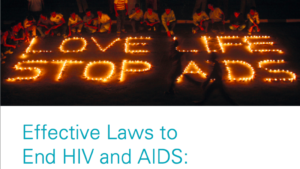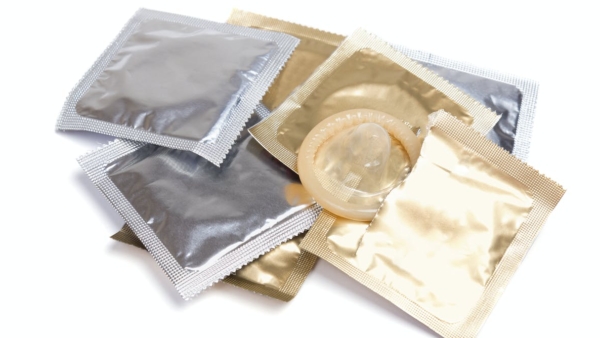Overview
New Zealand’s HIV criminalisation cases have been based on general criminal laws, with 14 prosecutions known to have occurred, with the first case reported in 1993. All defendants have been male, with guilty verdicts recorded in 10 cases (although one person died before their case was decided). Charges include ‘criminal nuisance ‘(maximum sentence of one year), ‘wounding with intent’ (seven years), ‘wilfully infecting with a disease’ (14 years), and “duty of persons in charge of dangerous things” (no specific sentence attached).
These men have been charged in cases of possible HIV exposure (no transmission alleged) and alleged HIV transmission. All cases involving sex have been based on the allegation that the accused did not disclose his HIV-positive status before sex. However, a http://www.smh.com.au/world/sleeping-woman-injected-with-hiv-20091205-kc01.html2010 case involved an HIV-positive man who was found guilty of injecting his wife with his own blood resulting in an eight-year, four-month sentence. It is one of the few HIV criminalisation cases ever in the world where it was proven that a person with HIV intended to, and actually did transmit HIV, and it is also one of very few cases involving injecting equipment.
The first prosecution for ‘wilfully infecting with a disease’ took place in 1995, with the judge making an important ruling relating to intent. The judge considered whether the accused had wanted, desired, or intended the complainant to become HIV-positive, deciding he had not. Instead, the judge found that the accused had wanted, desired, and intended to have sex and that, while HIV transmission may have been a probable consequence of having unprotected sex, it was not a consequence the accused desired. Although evidence showed the accused was sometimes deceptive, no evidence showed he had a desire to transmit HIV. Ruling that intent had not been proven, the Judge found the accused guilty of the lesser charge of ‘wounding with intent’ and sentenced him to seven years in prison.
In 2009, a gay man became the first person to be charged solely under section 201 of the Crimes Act 1961 – wilfully and without lawful justification or excuse causing or producing a sickness or disease.
Use of a condom was successfully used as a defence in a 2005 landmark ruling which established that it is not necessary for a person who knows that he or she is living with HIV to disclose his or her HIV-positive status to a partner if a condom is used during vaginal intercourse, or before unprotected oral sex.
More recently, in 2018, the court made a ruling acknowledging that HIV treatment has reduced the harms of HIV, finding that “the outcomes for an HIV-positive person, whilst still very serious, are no longer life threatening”. The appeal court found that the judge had wrongly directed the jury that HIV transmission amounts to grievous bodily harm. Instead, it found that this should be a matter for the jury to determine on evidence because, “in the light of medical advances we cannot safely exclude the possibility a jury might be persuaded that grievous bodily harm was not proved on the evidence”. In that same case, the Court of Appeal also found that the accused should not have been charged and convicted of both causing grievous bodily harm (s188) and criminal nuisance (s145). The appeal court found that he could be found guilty of only one or the other charges, as being found guilty of both for the same act constituted double jeopardy. Further, if trying to use both charges for separate acts, prosecutors would need to prove the criminal nuisance act occurred before the act causing grievous bodily harm. As the prosecutors could not prove precisely when the complainant contracted HIV, both charges could not be used. The appeal court ordered a retrial, however, the accused pled guilty to the charge of criminal nuisance (which did not require HIV transmission) and his sentence was reduced.
A 2009 case involved 11 male and 3 female complainants, seven of whom alleged that the man was the source of their HIV infection. The accused committed suicide in his cell prior to his trial. HIV criminalisation charges have also been laid in conjunction with other charges relating to sex with a minor.
Laws
Crimes Act 1961
Section 145 Criminal nuisance
(1) Every one commits criminal nuisance who does any unlawful act or omits to discharge any legal duty, such act or omission being one which he knew would endanger the lives, safety, or health of the public, or the life, safety, or health of any individual.
(2) Every one who commits criminal nuisance is liable to imprisonment for a term not exceeding 1 year.
Section 156 Duty of persons in charge of dangerous things
Every one who has in his charge or under his control anything whatever, whether animate or inanimate, or who erects, makes, operates, or maintains anything whatever, which, in the absence of precaution or care, may endanger human life is under a legal duty to take reasonable precautions against and to use reasonable care to avoid such danger, and is criminally responsible for the consequences of omitting without lawful excuse to discharge that duty.
Section 188 Wounding with intent
(1) Every one is liable to imprisonment for a term not exceeding 14 years who, with intent to cause grievous bodily harm to any one, wounds, maims, disfigures, or causes grievous bodily harm to any person.
(2) Every one is liable to imprisonment for a term not exceeding 7 years who, with intent to injure anyone, or with reckless disregard for the safety of others, wounds, maims, disfigures, or causes grievous bodily harm to any person.
Further resources
Ruling clarifies that use of a condom satisfies the requirement to take ‘reasonable care’ to prevent HIV transmission during vaginal sex, and that ‘failsafe’ precautions are not required by law. Also finds that oral sex without a condom (and without ejaculation) satisfies the standard of ‘reasonable care and precautions’. This ruling means that disclosure of HIV status before vaginal sex is not required as long as a condom is used. Disclosure before oral sex is not required.
Acknowledgements
Our thanks to Australian law firm Hall & Wilcox for their research assistance to confirm current relevant legislation.
HIV Justice Network's Positive Destinations
Visit the New Zealand page on Positive Destinations for information on regulations that restrict entry, stay, and residency based on HIV-positive status, as well as access to HIV treatment for non-nationals.











